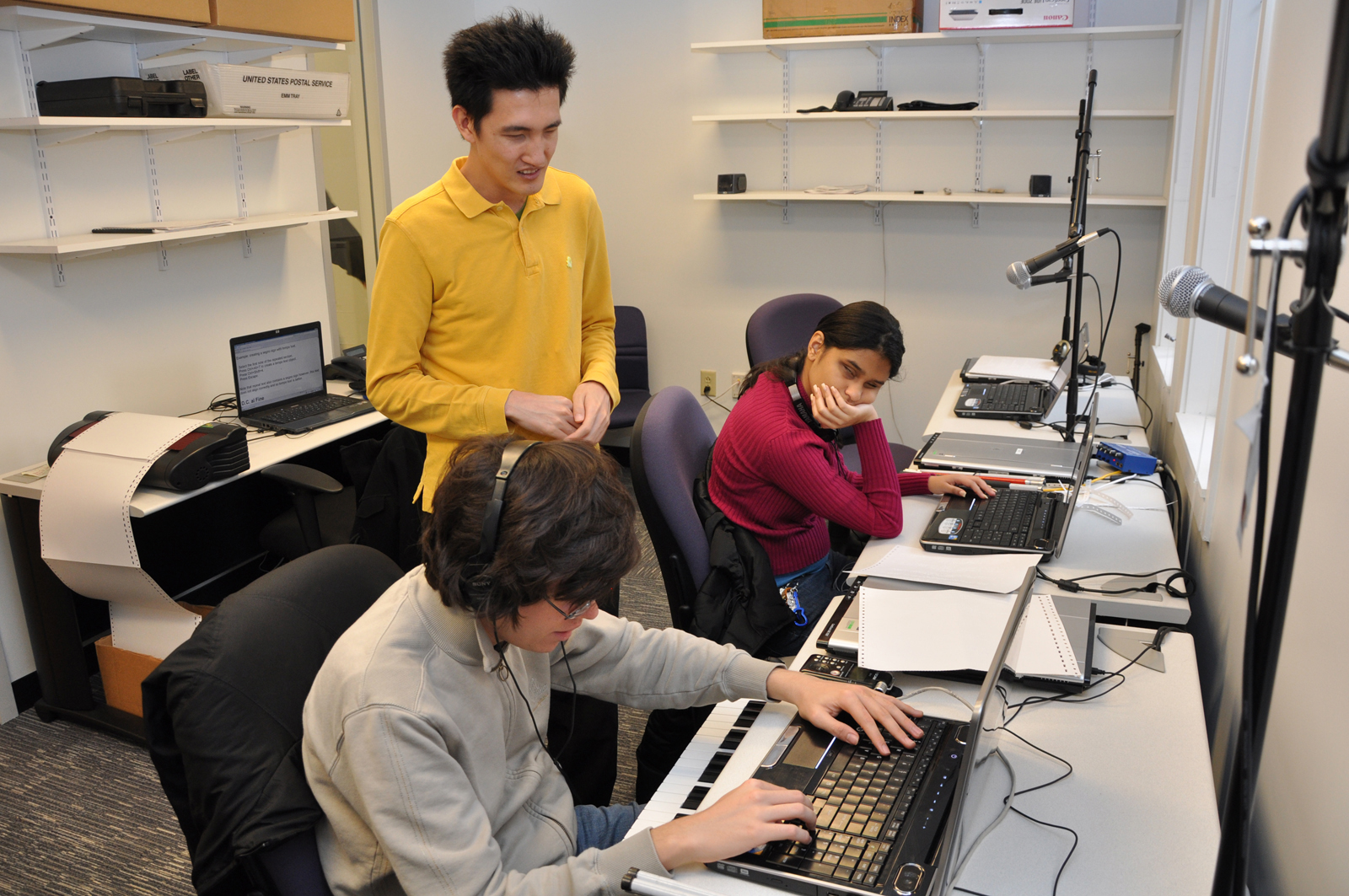Creative Independence for the Visually Impaired

Assistant professor Chi Kim works with visually impaired students in Berklee’s Assistive Music Technology Lab.
In the summer of 2010, Berklee opened the Assistive Music Technology (AMT) Lab to fully integrate blind and visually impaired students into the Berklee experience. The objective of the program was to empower these students to create and perform music at the highest levels and ultimately pursue successful music careers. The college believed that with a support system and a working knowledge of today’s assistive technology, blind students could participate at the same levels as their sighted peers. To date, the AMT Lab has served 32 visually impaired students from around the globe.
In recent years, the focus on music technology at Berklee has increased. Yet, the software used in the classroom is generally geared toward sighted students, making it difficult for blind students to fully participate in their courses. To remove these barriers, Chi Kim ’06, an assistant professor of music therapy and director of Berklee’s AMT Lab who is himself blind, successfully led a project to create Flo Tools, an assistive version of the music engineering software program Pro Tools.
After receiving a generous grant from the Conrad N. Hilton Foundation, Berklee will build on this past success by creating a version of the music notation program Finale that will be accessible to the blind. At Berklee, Finale is used extensively in the classroom, but visually impaired students must translate Finale files into the Sibelius notation program (which is accessible to the blind) and then back to Finale so teachers and other students can access their work. These workarounds are time-consuming, cumbersome, and often frustrating. The process also dampens creativity and impedes cross-classroom collaboration and communication, building barriers between blind students and their sighted peers. It has also tended to relegate visually impaired students to performance majors that are more readily accessible for them, regardless of what career path or advanced education these students desire to pursue.
Kim will lead a team in collaboration with developers from MakeMusic, Inc., the company that produces Finale. Other partners include the Berklee Institute for Creative Entrepreneurship (ICE), MIT Media Lab (Assistive Technology), National Library of Congress (National Library Service for the Blind), Perkins School for the Blind, National Braille Press, the Carroll Center for the Blind, and the Berklee Music Business/Management and Electronic Production and Design departments.
The resulting adaptive music-scoring program has implications that will extend beyond Berklee to serve other educational institutions and the music industry at large. Once the software is developed, it will be made accessible online with resources such as training videos and an instruction manual to promote widespread use.
“In the past, if blind students had a song in their heads, they had to get assistance from a sighted person,” Chi says. “With the new Finale software, they will have full control over what they write and record. It will enable them to become fully independent.”




